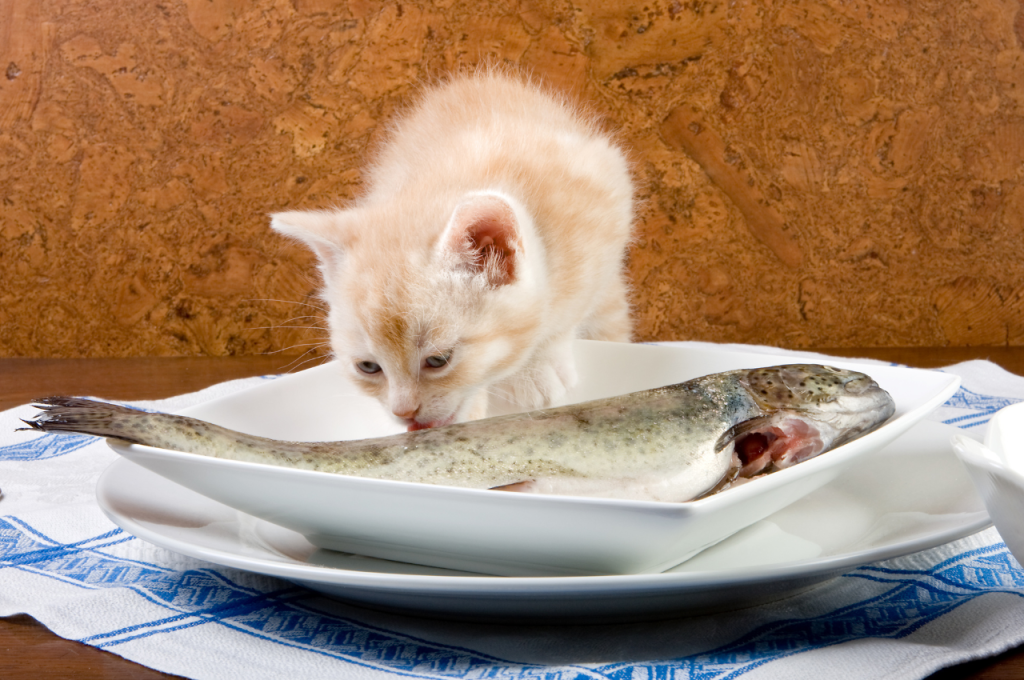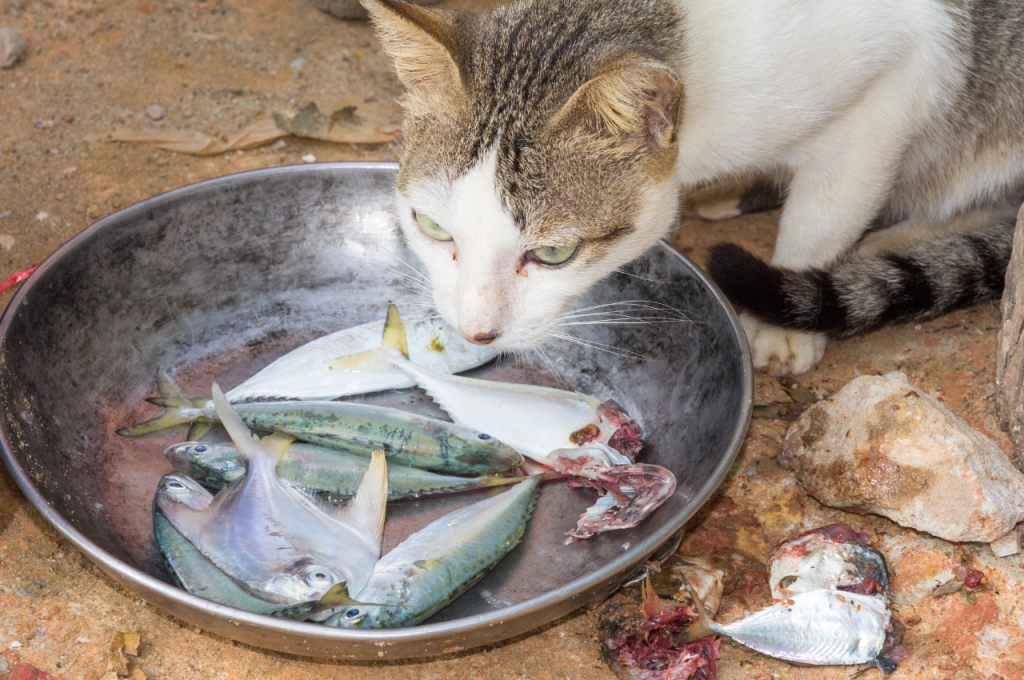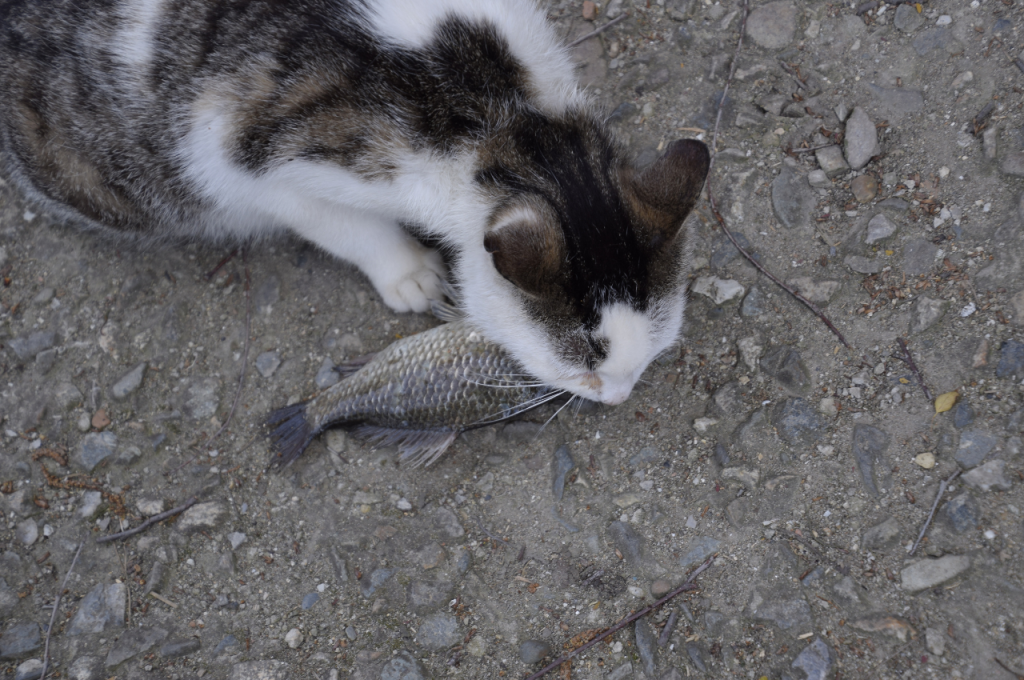A fishy smell in a cat’s breath could indicate dental or gastrointestinal issues. Dental problems like periodontal disease or tooth decay can lead to foul breath. Similarly, gastrointestinal problems like an upset stomach or certain dietary issues can also cause fishy breath.
Have you ever wondered why your cat’s breath sometimes smells like fish? It may surprise you to learn that this is quite common among cats. Despite their reputation for being clean animals, cats can sometimes develop a fishy odor in their breath. But why does this happen? Let’s delve into the possible reasons behind this peculiar phenomenon.
One of the main reasons why your cat’s breath may smell like fish is due to the food they eat. Cats are obligate carnivores, which means their diets consist mainly of animal protein. When cats digest their food, the byproducts can release certain gases and compounds that can cause a foul smell.
Understanding Why Your Cat’s Breath Smells Like Fish
It’s not uncommon for cat owners to notice their feline friends’ breath smelling like fish. While it may seem strange, there are several reasons why this can occur. Understanding the potential causes can help you address the issue and ensure your cat’s oral health is in check.

One possible reason for your cat’s fishy breath is dental disease. Just like humans, cats can develop a buildup of plaque and tartar on their teeth, leading to gum disease and bacterial infections. These infections can produce a distinct smell, similar to fish. Dental disease can be caused by poor dental hygiene, genetics, diet, or other factors. It’s important to regularly brush your cat’s teeth and schedule professional cleanings with your veterinarian to prevent or treat dental disease.
Dietary Factors and Fishy Breath
Another possible cause of fishy breath in cats is their diet. If you primarily feed your cat fish-based foods or treats, the odor may transfer to their breath. The oils and compounds found in fish can leave a lingering smell in the mouth. While some may find it appealing, others may perceive it as a fishy odor. If your cat’s breath smells strongly of fish and you suspect it’s diet-related, consider gradually introducing other protein sources into their meals to see if the odor improves.
Additionally, certain medical conditions can lead to metabolic changes in cats, resulting in foul-smelling breath. For example, liver or kidney disease can cause a distinct odor that may resemble fish. If your cat’s breath has a persistent fishy smell and you’ve ruled out dental issues and dietary factors, it’s crucial to consult a veterinarian for a thorough examination and diagnostic testing.
Lastly, your cat’s grooming habits can also contribute to the smell of their breath. Cats groom themselves by licking their fur, and if they ingest something with a fishy odor or taste, it can transfer to their breath. Therefore, it’s essential to keep your cat’s environment clean, especially their food and water bowls, to prevent any potentially smelly substances from entering their mouth.
Preventing Dental Disease in Cats
To ensure your cat maintains good oral health and prevent dental disease, there are several steps you can take:
- Brush your cat’s teeth regularly using a cat-specific toothbrush and toothpaste.
- Provide dental treats or toys designed to promote oral hygiene.
- Feed your cat a balanced diet that supports dental health.
- Schedule regular dental cleanings with your veterinarian to remove plaque and tartar.
By following these preventive measures and addressing any dental issues promptly, you can help keep your cat’s breath fresh and free from fishy odors.
Exploring Diet Options for Cats
If you suspect that your cat’s fishy breath is due to their diet, it may be worth considering some alternative options:

- Gradually introduce new protein sources into your cat’s meals, such as chicken or turkey.
- Consult with your veterinarian for recommendations on high-quality cat foods that promote good oral health.
- Consider providing dental chews or treats that help reduce plaque and freshen your breath.
- Monitor your cat’s reaction and breath odor as you make changes to their diet.
Remember, a balanced and varied diet is essential for your cat’s overall well-being, so be sure to consult with your veterinarian before making any significant changes to their diet.
Medical Conditions and Fishy Breath
If you’ve ruled out dental disease and dietary factors, it’s crucial to consider potential medical conditions that may be causing your cat’s fishy breath. Liver and kidney diseases are two conditions commonly associated with distinctive odors. Both these organs play a vital role in filtering toxins from the body, and when they are compromised, it can result in metabolic changes that lead to unpleasant breath odors.
If your cat’s breath consistently smells like fish, schedule a veterinary appointment to evaluate their overall health, including liver and kidney function.
Other medical conditions that can cause bad breath in cats include respiratory infections, oral infections, diabetes, or gastrointestinal problems. Veterinary professionals have the training and expertise to conduct the necessary diagnostic tests to uncover any underlying medical issues.
By working with your veterinarian and addressing any medical conditions promptly, you can help improve your cat’s breath and overall well-being.
Maintaining Your Cat’s Oral Hygiene
Prevention plays a crucial role in maintaining your cat’s oral hygiene and ensuring their breath smells fresh. Here are some additional tips to help you keep your cat’s mouth clean:
- Schedule regular dental check-ups with your veterinarian.
- Monitor your cat’s eating habits and appetite, as a decrease in appetite could indicate oral discomfort.
- Observe your cat’s gums for signs of inflammation, such as redness or swelling.
- Provide appropriate chew toys that help clean your cat’s teeth.
- Regularly inspect your cat’s teeth and gums for any abnormalities.
Early detection and intervention are vital for maintaining good oral health in cats. If you notice any signs of dental issues, consult with your veterinarian as soon as possible.
Making Dental Care a Positive Experience
Some cats may be resistant to having their teeth brushed or undergoing dental exams. Here are a few techniques to make dental care a positive experience:

- Start the dental care routine when your cat is young, if possible.
- Use positive reinforcement, such as treats and praise, during and after dental care sessions.
- Gradually introduce your cat to toothbrushing, allowing them to become comfortable with the process over time.
- Consult with a veterinarian or veterinary technician for guidance on proper toothbrushing techniques.
By making dental care a regular and positive experience, you can help ensure your cat’s oral hygiene and fresh breath.
Frequently Asked Questions
Cats are known for their grooming habits and generally have fresh breath. However, if your cat’s breath smells like fish, it can be a cause for concern. Here are some frequently asked questions and answers addressing the possible reasons behind this issue.
1. Why does my cat’s breath smell like fish?
There can be several reasons why your cat’s breath smells like fish. One common reason is dental issues such as periodontal disease or tooth decay. These dental problems can lead to the buildup of bacteria, which produce foul odors. Another possible cause is an underlying gastrointestinal issue, as certain digestive disorders can cause the breath to smell fishy.
If your cat’s diet consists of seafood-based foods, it can also contribute to their breath smelling like fish. The strong odors from fish-based diets can linger on the breath. Additionally, if your cat has been grooming themselves excessively and ingesting a lot of fur, it can result in hairballs, which can cause a fishy smell in their breath when regurgitated.
2. How can I improve my cat’s breath?
To improve your cat’s breath, it’s important to address the underlying cause. Regular dental care is crucial in maintaining oral hygiene. Brushing your cat’s teeth with pet-safe toothpaste and providing dental treats or toys can help reduce the buildup of plaque and bacteria. Professional dental cleanings by a veterinarian may also be necessary.
If your cat’s breath odor is related to their diet, you can try switching to a different type of food. Consult with your veterinarian to determine the best diet for your cat’s specific needs. Providing fresh water and encouraging regular hydration can also help improve their breath.
3. When should I seek veterinary attention?
If your cat’s breath suddenly starts smelling like fish, it’s advisable to seek veterinary attention. Chronic bad breath can be a sign of an underlying health issue that needs to be addressed. Your veterinarian can perform a thorough examination, including a dental assessment, to identify the cause and provide appropriate treatment.
Other signs to watch out for include excessive drooling, changes in appetite or weight loss, swollen gums, and difficulty eating. These can indicate more serious dental or health problems that require immediate veterinary care.
4. Can I use home remedies to improve my cat’s breath?
While some home remedies may help freshen your cat’s breath, it’s important to consult with your veterinarian first. Some natural options include adding parsley to their diet, as it has natural breath-freshening properties. You can also offer dental treats designed to reduce plaque and tartar buildup.
However, it’s crucial to remember that home remedies may not address the underlying cause of the fishy breath. It’s always best to seek professional veterinary advice to ensure the health and well-being of your cat.
Conclusion
A cat’s fishy breath odor can be indicative of a variety of underlying problems, from dental problems to gastrointestinal issues and dietary factors. While an occasional mild breath odor may be normal, persistent or particularly foul fishy odors require veterinary attention.
Regular dental care, including brushing your cat’s teeth and providing dental treats or toys, can help prevent dental problems that contribute to bad breath. Additionally, feeding your cat a balanced diet. By being vigilant and proactive about your cat’s oral hygiene and health, you can ensure they enjoy fresh breath and optimal health for years to come.
